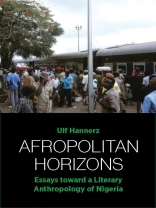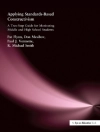Nigeria is a country shaped by internal diversity and transnational connections, past and present. Leading Nigerian writers from Chinua Achebe, Amos Tutuola and Wole Soyinka to Chimamanda Ngozi Adichie and Teju Cole have portrayed these Nigerian issues, and have also written about some of the momentous events in Nigerian history. Afropolitan Horizons discusses their work alongside other novelists and commentators, as well as describing the ways in which Nigeria has appeared in foreign news reporting. It is all interwoven with the author’s own anthropological field research in a town in Central Nigeria.
Tabella dei contenuti
Acknowledgements
Introduction: Nigerian Connections
Chapter 1. Palm Wine, Amos Tutuola, and a Literary Gatekeeper
Chapter 2. Bahia-Lagos-Ouidah: Mariana’s Story
Chapter 3. Igbo Life, Past and Present: Three Views
Chapter 4. Inland, Upriver with the Empire: Borrioboola-Gha
Chapter 5. The City, according to Ekwensi…and Onuzo
Chapter 6. Points of Cultural Geography: Ibadan…Enugu, Onitsha, Nsukka
Chapter 7. Been-to: Dreams, Disappointments, Departures and Returns
Chapter 8. Dateline Lagos: Reporting on Nigeria to the World
Chapter 9. Death in Lagos
Chapter 10. Tai Solarin: On Colonial Power, Schools, the Work Ethic, Religion and the Press
Chapter 11. Wole Soyinka, Leo Frobenius and the Ori Olokun
Chapter 12. A Voice from the Purdah: Baba of Karo
Chapter 13. Bauchi: The Academic and the Imam
Chapter 14. Railtown Writers
Chapter 15. Nigeria at War
Chapter 16. America Observed: With Nigerian Eyes
Chapter 17. Transatlantic Shuttle
Chapter 18. Sojourners from Black Britain
Chapter 19. Oyotunji Village, South Carolina: Reverse Afropolitanism
Index
Circa l’autore
Ulf Hannerz is Professor Emeritus of Social Anthropology, Stockholm University, and has taught at several American, European and Australian universities. He is a member of the Royal Swedish Academy of Sciences, the Austrian Academy of Sciences and the American Academy of Arts and Sciences, and a former Chair of the European Association of Social Anthropologists.












